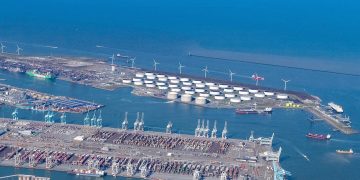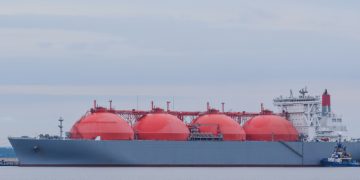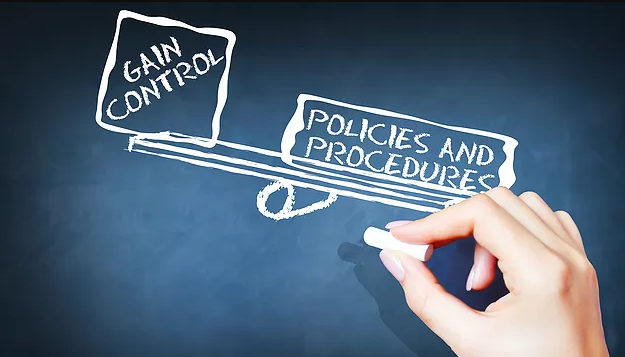It has been 30 years since the initial drafting and 20 years since the mandatory introduction and of the ISM Code. While a lot of ink has been spent around the globe, we do not have a clear structure on how to assess the effectiveness of the ISM Code and at the same time we have seen very limited reports on the subject. However, we have a clear understanding of how shipping stakeholders work and that will guide us to assess where we stand.
The initial concept behind ISM Code was the introduction of a Safety Management System for a ship operator, leading to certification of office and the ships managed in order to act as a license to trade. The key reason behind it was that if they had the certification, this would introduce a level playing field; in that sense, it may separate the good from the evil, the sheeps from the wolves.
Let’s see the three key reasons, why ISM has failed so far to deliver the promised benefits!
Reason # 1: Old school thinking
The initial concept behind the drafting of the code reflected on the culture of that age; specifically the late 80s. In order to understand why this old school thinking is a roadblock towards benefiting from the Code, we can sum up as follows:
- Shipping was different 30 years ago, with smaller, slower ships; less busy ports, more port stay; different crew complement and nationality matrixes; different training needs; different stakeholder needs and above all different charterer needs.
- The level playing field, (each operator and ship issued a certificate as a license to trade) may seem rational but it is rather “naïve” as aiming not to displease the majority of the market the bar was set too low, leaving no separation zone between top and bottom tier performers.
- The initial idea was to audit the company every year and the ship every two and a half years; the opposite would make more sense in real life and we haven’t seen any progress on that, especially with respect to the auditing of the companies. Auditing is actually sampling and this may assure – but not ensure – compliance.
- There are no guidelines introduced for the implementation of the Code for ship operators, crews, ports, PSCs and stakeholders. ISM brought forward the introduction of the Designated Person Ashore (DPA) and it was 2007 that we read a guideline for the qualifications and training with the bar set so low and vague that 99.9% of those working as DPAs were fully fulfilling the standard.
- We know today that certification is not the best way to develop a level playing field. Compliance and certification based models have failed over the last 20 years in both shipping and other sectors where we have witnessed the rise of the self-assessment and best practice guidance.
Reason #2 : Monitoring is not existent
With the introduction of the Code, there was no set of tools introduced to make monitoring deliver in real life. We may sum up the following key points that highlight this issue:
- There is no real life Key Performance Indicators (KPIs) introduced/ required. What ISM requires is to assess the effectiveness, (i.e. no accidents, detentions, near misses etc.) but the opposite would be realistic. Reporting is not evident in many cases while it should be encouraged!
- On the absence of any monitoring and detailed standard we have seen in certain sectors, (e.g. Tankers and Dry Bulk) the introduction of vetting; with very detailed inspection standards, well trained inspectors and approval criteria with no certification at all!
- There is no industry consensus on accident or near miss or root cause analysis or lessons learned, structured reporting (e.g. every quarter/year on a standard format) to and from several stakeholders (IMO , ROs, Flags, PSCs, Operators etc.) so that the industry be properly guided and benchmarked
Reason #3 : Lack of proper incentivization
We have seen a lack of proper incentivization for all stakeholders involved around ISM within the framework of the Code. To sum up, the following are the key problem areas:
- There is no advantage/benefit (less frequent inspections, commercial benefits etc.) for the top performers and separation zone between the good and the bad within the industry. Best players are not advantaged and this is a side effect of setting the bar too low.
- There is no handicap for the bottom tier performers, those who operate on the lowest acceptable standards onboard and ashore. Statistics indicate that 20% of global shipping is responsible for the 80% of the accidents occurring and ISM provides no light to identify these operators and ships.
- As ISM certification is a certificate to trade, any RO is placed on a tight spot and this leads to more than 99.9%. This is by no means an indication of success but exactly the opposite. We haven’t seen a blacklist containing these substandard operators and this cannot move the industry forward.
Where we stand
Setting the bar too low has made the ISM Code surpassed by developments and in some strange way has made the ISM to become obsolete. We can see a full health check of the ISM code and seems rather problematic. The compliance model behind the ISM Code has failed. Setting the bar too low does not provide for good and bad to be separated. What we have seen working properly – not only in the shipping industry but also other industries, is a self-regulation, self-assessment and best practice guides
Furthermore there can be no more emphatic argument towards that other than the introduction of a wide range of regulations with the context of the SMS (ISPS, BMP for security, cyber guidelines) or self-assessment and self-regulation initiatives such as TMSA, BMSA, Vetting, etc.
The greater danger for most of us lies not in setting our aim too high and falling short; but in setting our aim too low, and achieving our mark.- Michelangelo
Recap/Conclusion
From the above, it is evident that something is wrong: We have opted for setting the bar too low and this has back fired on the best segments and stakeholders of the industry. The world has changed significantly over the course of the last 30 years, we are discussing about smart ships and shipping 4.0. Operating on a standard which was designed 30 years ago is like driving a plane, using the mirror of our car, looking backwards. Certainly, there was a vision behind ISM Code and the implementation required, but this has no real value. Ideas without execution are only dreams; while in the real shipping world all stakeholders must live to fight another day!
About Apostolos Belokas
 Apostolos is a Maritime Safety, Quality & Environmental Expert, Consultant, Trainer and Project Manager with more than a 20-year background in shipping as Technical, Marine, Safety & Training Superintendent and Consultant. He entered the industry back in early 90’s as Engineering Superintendent with a leading ship manager operating a mixed fleet of bulk and oil/chemical tankers. He then shifted to regulatory compliance and QHSE as superintendent and later as a Consultant and Trainer. Apostolos has successfully completed a wide range of QHSE projects including 250+ management system projects (ISM/ISO 9001-14001-18001/TMSA/MLC), 500 vessel and office audits to various standards and he has trained more than 8,000 people in a wide variety of QHSE subjects. He has also presented and chaired to more than 40 conferences. He holds Mechanical Engineering Bachelor and Master’s specialising in Energy & Environment and Master’s Degree in Maritime Business and Business Administration (MBA), all of them awarded with distinction. Apostolos is the Managing Director of SQE MARINE, SQE ACADEMY and Managing Editor of SAFETY4SEA.
Apostolos is a Maritime Safety, Quality & Environmental Expert, Consultant, Trainer and Project Manager with more than a 20-year background in shipping as Technical, Marine, Safety & Training Superintendent and Consultant. He entered the industry back in early 90’s as Engineering Superintendent with a leading ship manager operating a mixed fleet of bulk and oil/chemical tankers. He then shifted to regulatory compliance and QHSE as superintendent and later as a Consultant and Trainer. Apostolos has successfully completed a wide range of QHSE projects including 250+ management system projects (ISM/ISO 9001-14001-18001/TMSA/MLC), 500 vessel and office audits to various standards and he has trained more than 8,000 people in a wide variety of QHSE subjects. He has also presented and chaired to more than 40 conferences. He holds Mechanical Engineering Bachelor and Master’s specialising in Energy & Environment and Master’s Degree in Maritime Business and Business Administration (MBA), all of them awarded with distinction. Apostolos is the Managing Director of SQE MARINE, SQE ACADEMY and Managing Editor of SAFETY4SEA.





























































I recall 20 years ago the Swedish Club offered rating discounts for early compliance with the code. the forerunners to Gard , Vesta, Storebrand and the Gjensidige refused cover where there was Non-Compliance of the Code , I followed the Swedish Club and offered rating improvements for ealy compliance and non-compliance would invalidate claims. The insurance market has the ability to support and reward compliance with the code.To request not only details of paid and outstanding claims but also to see the reports of Non-Conformities and the subsequent actions taken . Incredibly, I learned recently some operators reward Masters if they report an “uneventful” voyage .
I agree the ISM Code became effective in 1998. The bar was set too low then. Since 1998, the business environment has changed due to the pace of introduction of technology, geopolitics on use of seas. People have also changed in their behavior in response to DUCA ( dynamic, uncertain, complex and ambiguous ) work environment.
Section 1.2.2 -Objectives of the ISM Code need revision in the light of new accident prevention model called systemic model (sociotechnical approach). The industry should not only be prepared for emergencies, but should be able to develop organizational capacity to deal with emergent risks before they become an emergency. This can be achieved by adopting systems approach to build organizational resilience.